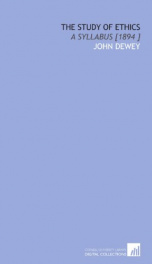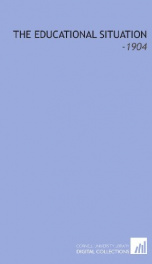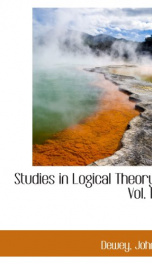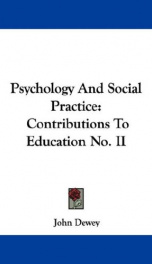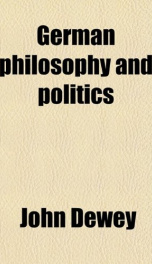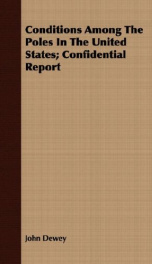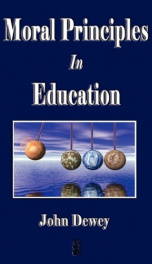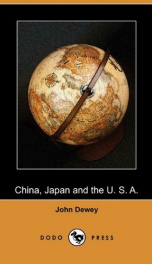outlines of a critical theory of ethics
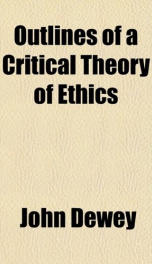
Purchase of this book includes free trial access to www.million-books.com where you can read more than a million books for free. This is an OCR edition with typos. Excerpt from book: Chapter II.THE IDEA OF OBLIGATION. XLII. Theories Regarding The idea of obligation Moral Authority, or duty has two sides. There is the idea of law, of something which controls conduct, and there is the consciousness of the necessity of conforming to this law. There is, of course, no separation between the two sides, but the consideration of the latter sidethe recognition of obligationmay be best dealt with in discussing conscience. Here we shall deal simply with the fact that there is such a thing in conduct as law controlling action, and constituting obligation. Theories regarding obligation may, for our purposes, be subdivided into those which make its exercise restraint or coercion (and which therefore hold that in perfect moral conduct, duty as such disappears); and those which hold that obligation is a normal element in conduct as such, and that it is not, essentially, but only under certain circumstances, coercive. Of the former type, some theories (mainly the hedonistic) regard the restraint as originally imposed from without upon the desires of the individual, while others (as the Kantian) regard it as imposed by man's reason upon his desires and inclinations. XLIII. Bain's It is obvious that the question Theory of of obligation presents considerable Obligation, difficulty to the hedonistic school. If the end of conduct is pleasure, as the satisfaction of desire, why should not each desire be satisfied, if possible, as it arises, and thus pleasure secured? What meaning is there in the term ' duty' or ' obligation' if the moral end or good coincides wholly with the natural end of the inclinations themselves ? It is evident, at all events, that the term can have significance only if there is some cause preventing the desires as they arise from natural sati...
Info about the book
Author:
Series:
Unknown
ISBN:
0809327937
Rating:
3.5/5 (1)Your rating:
0/5
Languge:
English
Users who have this book
Users who want this book
What readers are saying
What do you think? Write your own comment on this book!
write a commentif you like outlines of a critical theory of ethics try:
Other books by this author
Do you want to exchange books? It’s EASY!
Get registered and find other users who want to give their favourite books to good hands!

